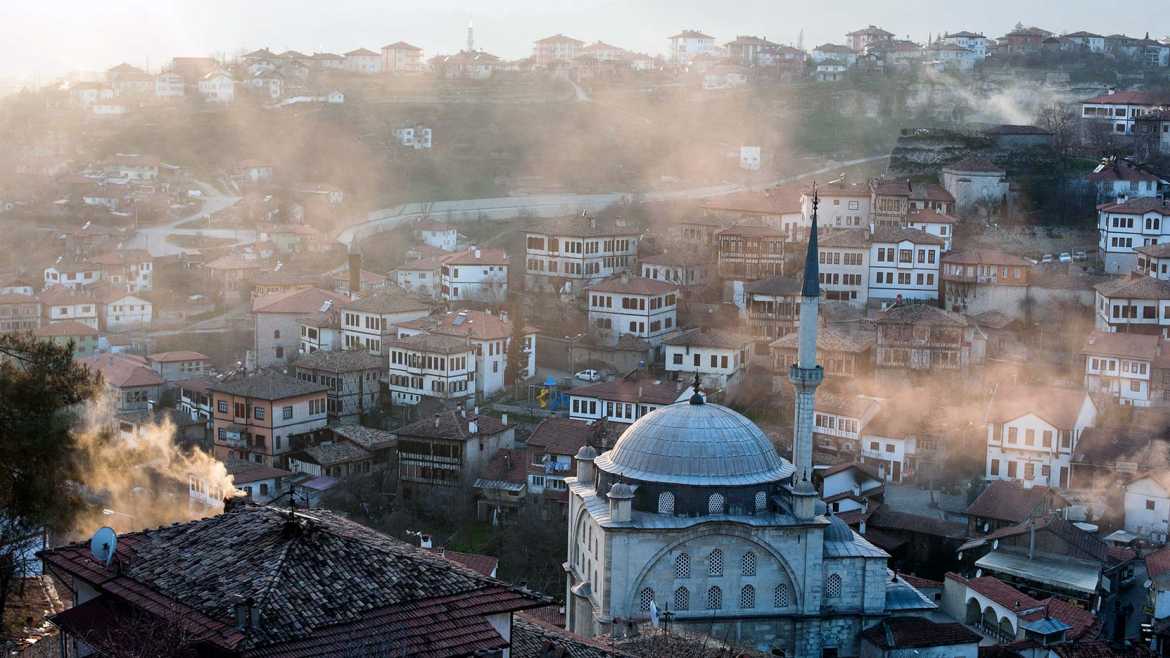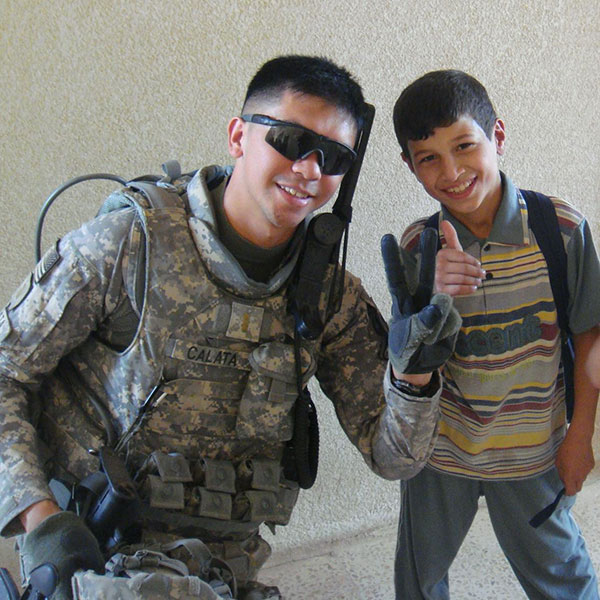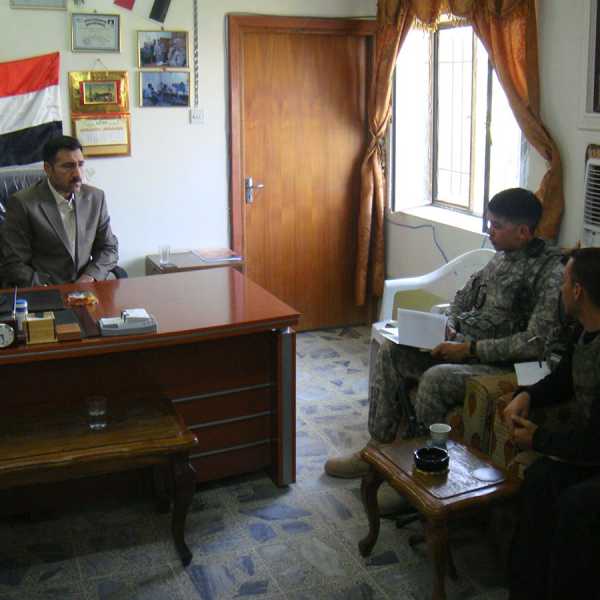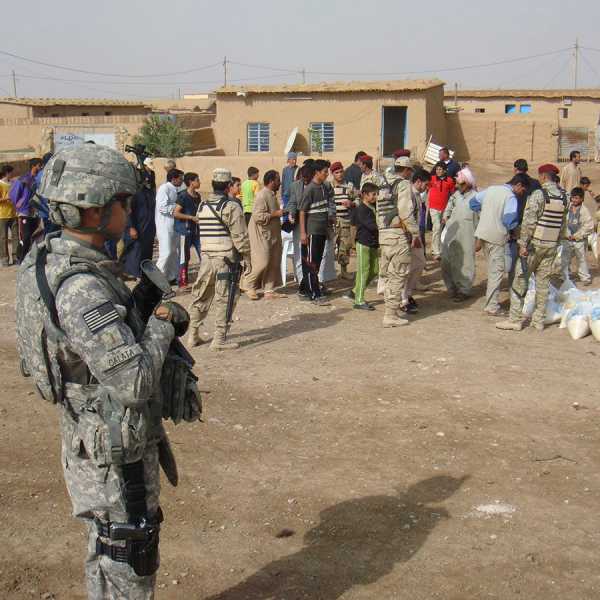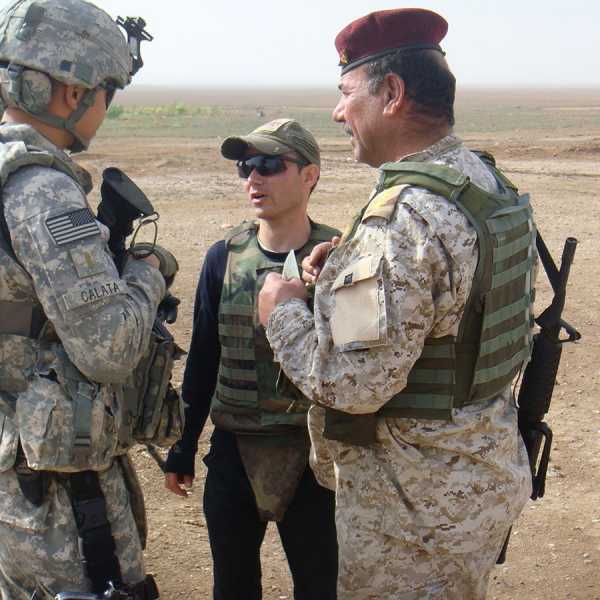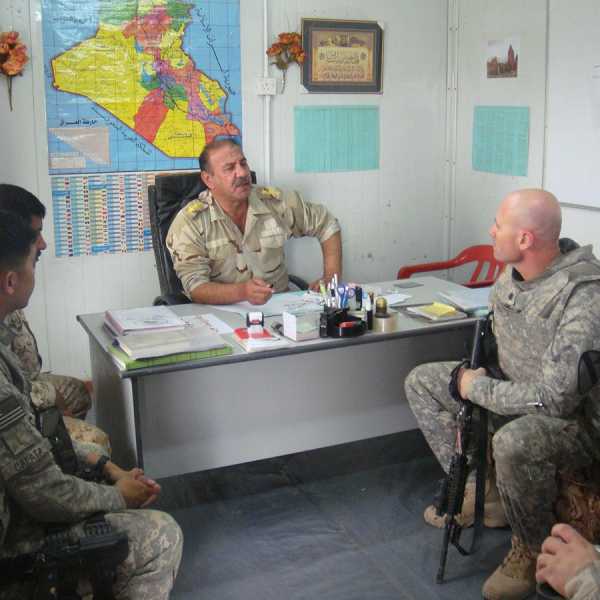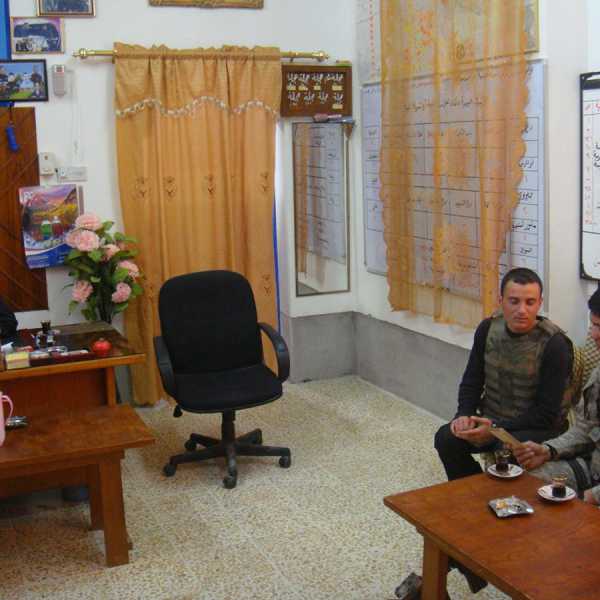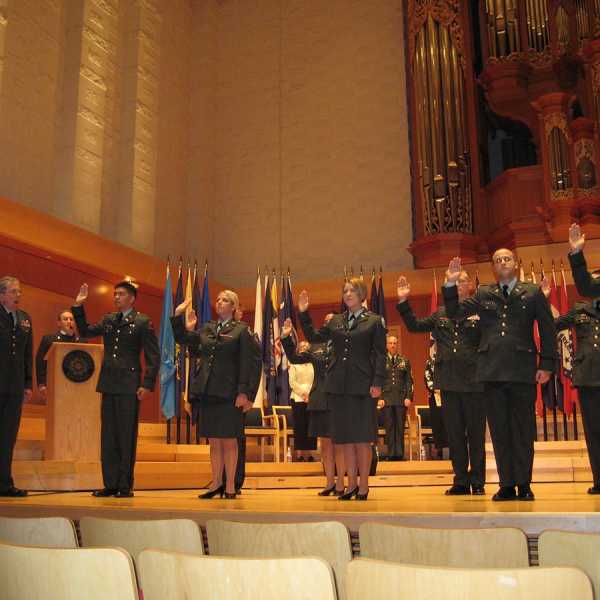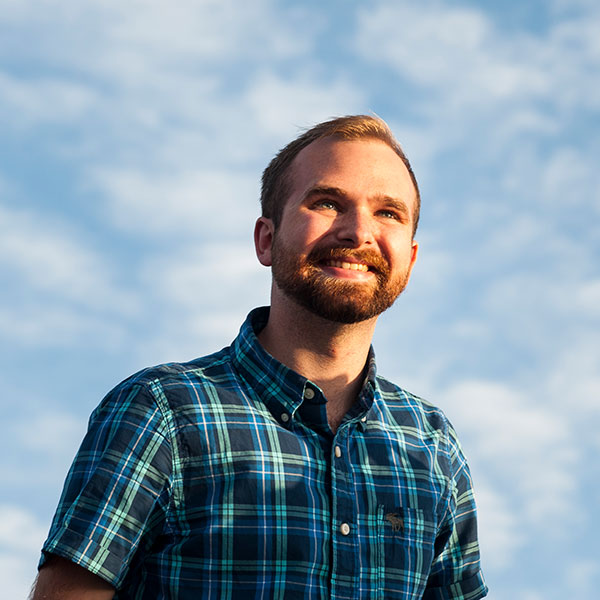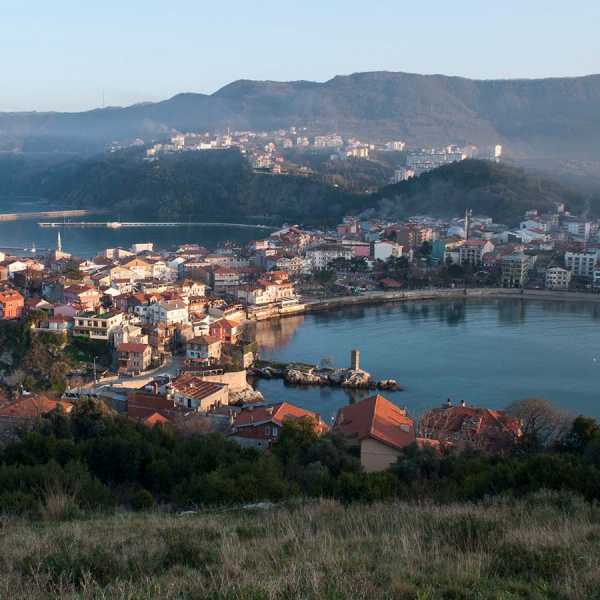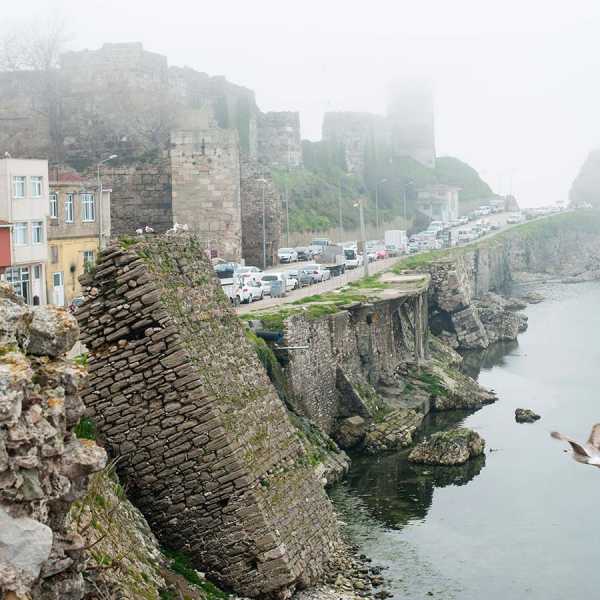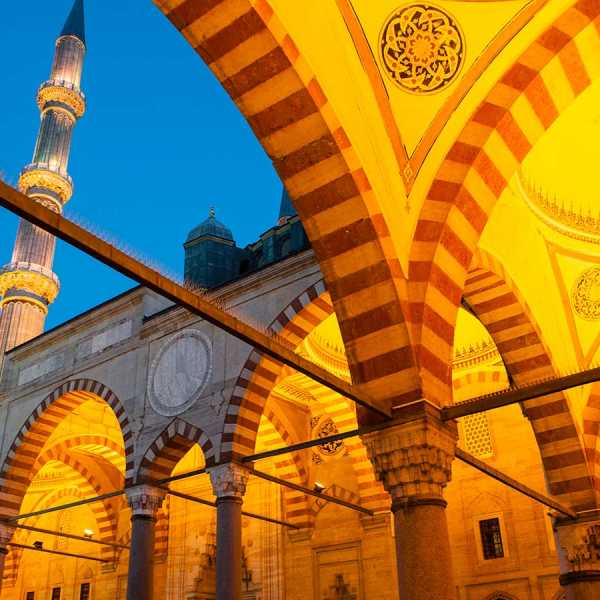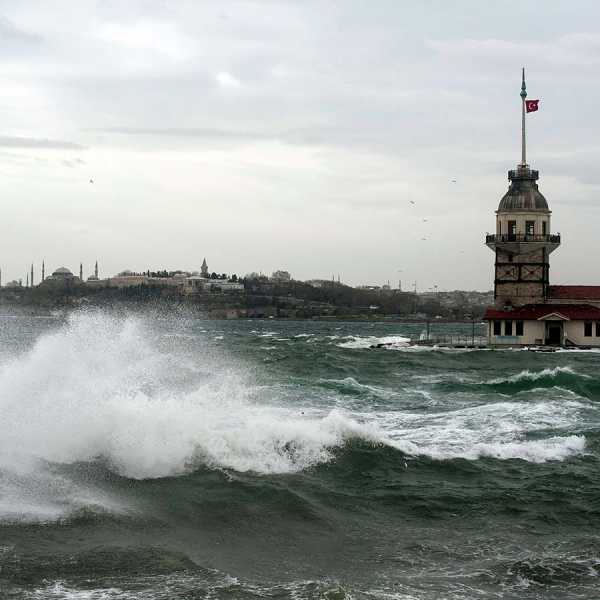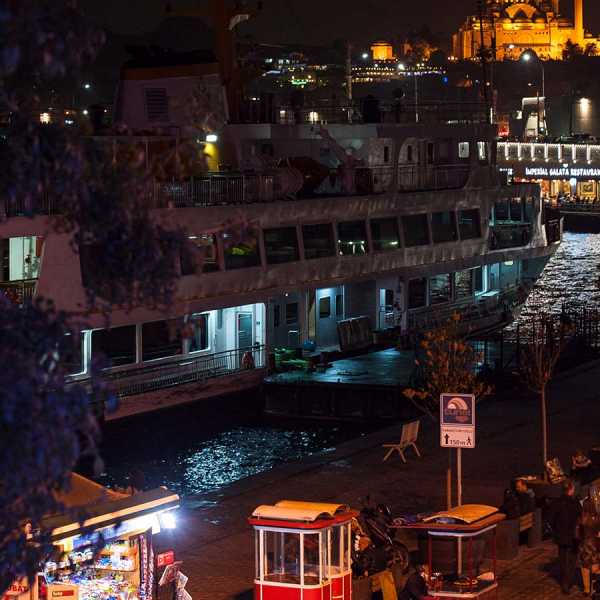Lutes in Conflict
Alumni experience international conflict, crisis around the world
“Amy and I decided to get out of the crowd and duck into a hotel for a drink until the crowd dissipated. As we stepped into the hotel pandemonium broke loose and a rush of people flooded inside after us,” Geoff Boers ’80 wrote in a message home. “No one knew what was going on, just lots of screaming, sirens and military running with guns drawn.”
Boers had been visiting Nice, France, on Bastille Day last summer when a terrorist drove a truck into a crowd of locals and vacationers during the festivities. The bloody attack killed 86 people and made headlines around the world.
“The fear and sadness cannot be adequately expressed,” Boers wrote. “We are so sorry for the lives lost, thankful to be safe, and hopeful that tonight might be transformational in some way, that I, we, might do something to change things.”
Globally, Pacific Lutheran University alumni such as Boers are coming face to face with the international conflicts that are defining the modern era. Some by accident, others by choice.
Service amid war
Dom Calata ’08, a military brat who followed in his father’s footsteps, enrolled in PLU’s ROTC program not long after the Iraq War started.
He initially intended to be a nursing student, but struggled. The path ultimately led to rejection from the program, putting his military scholarship in jeopardy. But Lt. Col. Gillian Boice, PLU’s professor of military science, stepped in.
“I owe her my entire military career,” Calata said. “She fought really hard for me to keep my scholarship.”
Boice instilled a fierce sense of responsibility in Calata and other cadets. She is a decorated combat veteran of Desert Storm, the conflict in the Balkans and Operation Iraqi Freedom — a seasoned officer who talked with the authority of experience.
“What I learned from her about being a leader, taking care of people,” Calata said, “that’s something I’ve always kept.”
As he shifted gears from nursing, Calata turned to political science. Through those studies he met Professor Ann Kelleher. She had a reputation as a tough instructor and, like Boice, had real-world experience with war and diplomacy. “She really made it clear that poli sci wasn’t a throw-away major,” Calata said.
He said Kelleher’s conflict resolution class helped stress the complex nature of many of the conflicts around the world. “Each part of the world has their own nuances to it,” he said. “Trying to solve a problem in a cookie cutter way isn’t going to solve it at all.”
Calata’s first deployment included working side by side with the mayor of a town, a brigade commander of an Iraqi army unit and a local police chief. All had their own areas of responsibility, he said.
“But me as a 22-year-old lieutenant? Luckily, I had my political science degree and I have my training,” Calata said. “But how do you expect a 22-year-old kid to go into a place as old as the Bible and say ‘here, I’m going to fix your ancient problems.’”
Calata said he often thought back to the way Boice and his other ROTC instructors drew upon their experiences in Iraq and Afghanistan — the way they tried to teach students that, in real life, the problems you face aren’t always black and white.
“I think they did a good job of saying ‘hey, this is what the book says but this isn’t always what you’re going to do.’”
Calata has since left the Army, and serves in law enforcement, but many of his fellow ROTC graduates are still fighting overseas.
Witnessing crisis
The ripple effects of warfare over the years can be felt far and wide.
Theodore Charles ’12, who studied anthropology at PLU, spent two years in Turkey researching food culture and migration with the Fulbright program.
“Looking at Turkey is kind of an interesting geographical location because over centuries and centuries and centuries you have all these movements of people,” he said. “So you’ve got this confluence of culture.”
But through the course of his research, the mass movement of refugees fleeing wars in the Middle East began to intermesh with the mass movements of old. Charles personally witnessed the rapid progression of the refugee crisis.
He recalled taking time off for a local holiday and witnessing the conflict up close. “I took a ferry across to one of the Greek islands,” Charles said. “There were life vests floating in the water, boats of refugees; there were fishing boats and other pleasure craft out trying to help people if their boat sank. And this was just during a 45-minute ferry trip.”
When he arrived in Greece, he saw piles of discarded boats and vests. “From some who made it and those who didn’t,” he said. Witnessing the effects of the crisis during what was supposed to be a leisurely, quick vacation was a sobering reminder of the world around him, Charles said. It gave him a deep appreciation for what refugees endure.
“You have to think that if they’re willing to risk this, how bad does it have to be where they’re coming from that this seems better?” he said.
Last year proved to be a particularly bloody year in Turkey, as terrorists ramped up attacks in the country. “I think I missed one by 15 minutes when I was in transit in Ankara passing through. There was one when I was in Istanbul,” Charles said. “Over time there were so many bombings that there was this sense of horror and then normalcy … there was an intense grief and then things going back to normal.”
Eventually, the violence directly affected Charles. While he was temporarily away last summer, a failed military coup against the controversial Turkish President Recep Tayyip Erdoğan disrupted his plans to continue research. Though Charles intended to return, the post-coup upheaval kept Fulbright from renewing the program.
“Everything kind of changed,” Charles said, “all of my plans for the next few years.”
He said it’s disappointing. He loved Turkey and its people. He said he was grateful for the kindness he experienced from strangers there and was constantly moved by the plight of refugees trying to start new lives — most of them caught up in events far beyond their control.
Charles continues to watch the refugee crisis unfold from his home in the Bellingham area, mostly through news feeds and video clips. He said he thinks it’s hard for Americans to grasp the scope and scale of the human crisis unfolding in the Mediterranean.
Nevertheless, he said it’s the sort of event that’s going to shape the world for generations to come — and it already has.
“When you leave one place and go to another place, you’re bringing your memories, your experiences, your culture with you,” Charles said. “And that’s why I went to Turkey, because of the historical movement of people.
“We all impact what is around us when we go to a different place. And we change ourselves.”


